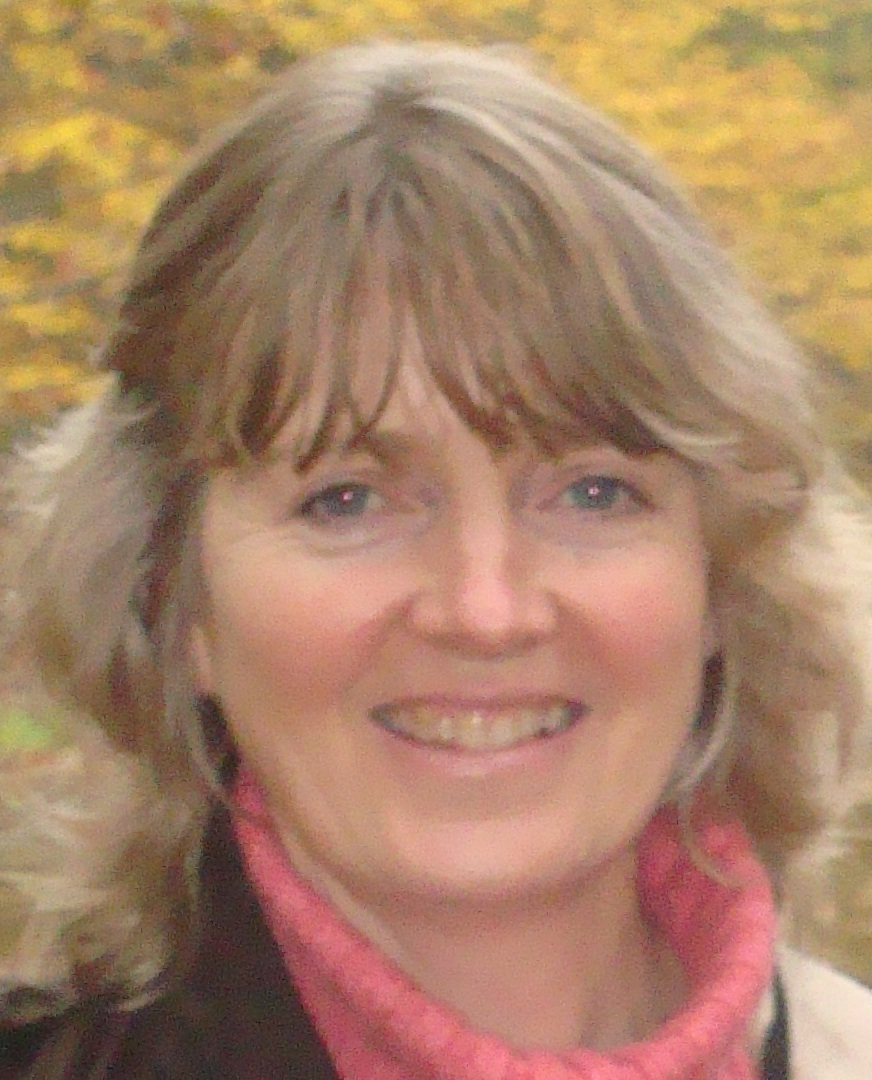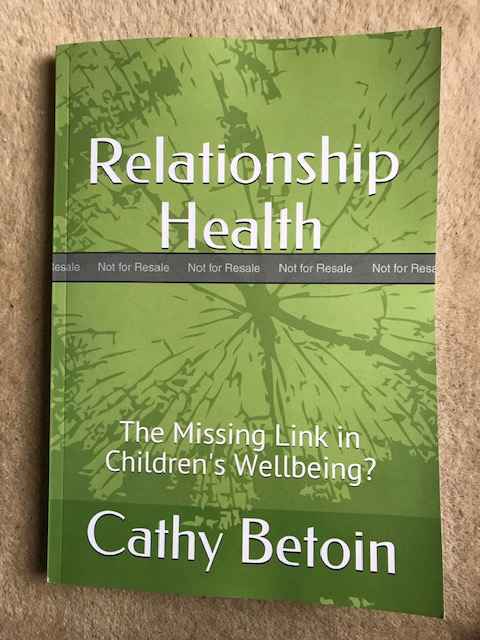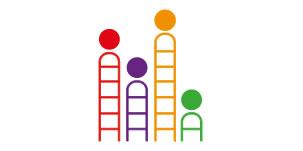Professionals and Determined Parents who support children and Families:
What Do We Need to Do to Improve Children's Mental Health and Wellbeing?
Learn about the overlooked but vital issue of
RELATIONSHIP HEALTH and about the Five Steps Way Forward

Hello, Fellow Professionals Who Support Children and Families and Determined Parents-Carers!
(in Health, Education, Social Care, Policing, and Community Practice)
So do you want to know what to do to improve the mental health and wellbeing and other important outcomes for or one or more children in your classroom, or GP clinic or community?
Do you feel you have been looking for answers and not getting anywhere fast|?
So, here's something exciting!
How would it be to feel
+ less helpless in the face of excessively long waiting lists
+ less discouragement in the face of endless forms to fill
+ less frustration at fruitless waiting for services that don't deliver the results that matter
+ less discouraged while waiting around for others to take action
Why?
Because there is something that can make a big difference that I want to share with you.
After many years of professional and personal puzzling, I started to suspect that something big was missing in our education and health practice with children, particularly for the vulnerable child, and when I realised what it was, I confess I was shocked!
Then in December 2020 I woke with an idea for this book and I decided to do a quick internet search - but to my astonishment I couldn't find any books titled with this enormously important issue. Not one! Yikes.
Here's what I had realised: Relationship Health IS the missing link in child and adult wellbeing. Yikes again.
So, now there are three books. Here is the title I decided to go for for the first book
Relationship Health: the Missing link in Child and Adult Wellbeing.
Think about it - we all know about physical health and the steps we must take to support it and we are starting to understand about mental health and the steps needed to support that,
However somehow we have missed Relationship Health as something which underpins them all
It's astonishingly and almost embarrassingly simple, but there is a lot of confusion in children's mental health practice right now and I assure you that the concept of Relationship Health can turn things around not just in child mental health and wellbeing practice - but also in relation to other important outcomes such as education outcomes, adult mental health, physical health, and crime statistics.
Here's a brief outline of my story:
Before I understood the ideas which I have set out in this book, I often found myself very confused in my professional and parenting role. I was considered to be an expert, but I wasn’t convinced by what I had learned through my training, as it had left me with too many unanswered questions
+ Why were waiting lists so long?
+ Why are so many children struggling?
+ Why were there so many diagnoses that all seemed to overlap?
+ What is missing in our practice - how do all the varied models fit together?
+ Why is what I have been taught not working for me in my own role as a parent?
Since understanding these ideas
+ I feel clearer about what I am trying to do in my work and home roles and about how to support my clients, wider team and community
+ I have a way of thinking about things that helps me everyday in my professional and personal roles
+ I am able to work with other professionals in my community with commitment to an approach that makes sense
+ I have language that I can use with my clients - adults and children and colleagues - that makes sense to them too and is transparent and not opaque.
+ And most importantly, my own relationships - at home and at work - are in a much healthier place – thankfully! :))
+ So now, I feel really strongly that I want to share these ideas with other professionals so that together we can bring about some shifts in the way we think about child and family practice and help more families and their children more effectively.
READ THE BOOKS AND COME AWAY CLEARER ABOUT THE ISSUES
AND ABOUT THE STEPS NEEDED TO FIND A WAY FORWARD
Relationship Health: The Missing Link in Child and Adult Wellbeing.
and three valuable bonuses
Relaunch coming soon!
DISCLAIMER: Relationship Health isn't a cure all. Instead it's an umbrella concept that offers a personal and professional collective road map. Improving Relationship Health isn't necessarily easy, in fact the truth is that it can involve a considerable amount of commitment. But something happens when you at least know where you are going. Something happens when the Fog (the first of the Five Steps to Success which you will learn more about) starts to lift.

Here's a picture of the printed book cover - in an early draft version.
Here's what's inside the first book
Relationship Health: The Missing Link in Children's Wellbeing
The Book has 110 pages
It is structured in the following five sections known as the Five Steps to Success
CONTENTS
Welcome
Introduction to a Five Steps Process : Helping Anxious and Challenging Children
Part 1: Acknowledge the Fog: Name your Not-Wants and Your Wants
OR: Why are so many children struggling?
1.1: Children’s wellbeing: Acknowledge the fog
1.2: Some statistics
1.3: Is challenging behaviour a mental health issue?
1.4: What’s wrong with this child?
1.5: Professional orientation and the family between us
1.6: Dreaming the future – Time 1
Part 2: Become Informed: There’s a Lot to Learn
OR: What does the research REALLY say?
2.1: Biopsychosocial problem formulation: Why is my baby crying?
2.2: Attachment theory - what’s that?
2.3: Interpersonal stress regulation and trauma
2.4: Child social-emotional development
2.5: Parenting styles and outcomes for children
2.6: Couples and communication: the role of awareness
2.7: Restorative practice and parallel processes
2.8: A model for child & family practice: The I Matter Framework
2.9: What is Relationship Health and why is it important?
2.10: Dreaming the future – Time 2
Part 3: Take Care of You: Build Yourself a Team
OR: Applications of relationship health thinking
3.1: Relationship health at home
3.2: Relationship health inside
3.3: Relationship health and mental health
3.4: Relationship health and physical health
3.5: Relationship health and education practice
3.6: Relationship health and crime: safer communities
3.7: Relationship health and society
3.8: Relationship health and environmental health
3.9: Relationship health and spiritual health
Part 4: Develop Routines: Connect and Take Charge:
OR: Practical steps to improved relationship health
4.1: Diagnosis of relationship health Issues
4.2: The fourth of the Five Steps to Success
4.3: Passive and active learning
4.4: Agreeing bench marks
4.5: Why your self-awareness matters
4.6: Learning to watch affectionately and listen
4.7: Learning to communicate
4.8: Accepting differences: We need to talk about boys
4.9: Wholistic thinking and the community wheel
Part 5: Fine Tuning of Therapeutic Care
OR: Implications of relationship health for policy and practice
5.1: Policy and practice of parenting-caring
5.2: Policy and practice of children's health
5.3: Policy and practice of children's education
5.4: Policy and practice of children's mental health
5.5: Policy and practice of children's EHCP plans
5.6: Policy and practice of adoption support
5.7: Policy and practice of Children Looked After
5.8: Policy and practice of child protection
5.9: Policy and practice of a healthy society
5.10: Policy and practice of environmental care
Part 6: Conclusions
6.1: The relationship health process
6.2: Relationship health needs: professional issues
6.3: Relationship health needs: personal issues
6.4: Relationship health training needs
6.5: Relationship health assessment
6.6: Starting with You
6.7: Relationship health next steps: An invitation
Appendices
Appendix 1:: Restoring relationship health: professionals & parents
Appendix 2: Keys to effective practice
Appendix 3: Case studies and about Dr Cathy Betoin
As a guiding idea Relationship Health has wide applicability so it will help you even if you are too busy to think about anything much else. It is a helpful idea whether you are talking about Adult-Child relationships or whether you are talking about Adult-Adult Relationships.
Relationship Health as an idea works at home and in school and community settings with typical and vulnerable children. It works in everyday situations and in the most challenging situation. Its an idea that everyone can understand and so it helps start conversations that move things forward.
What's more I want you to know that Relationship Health has a solid theoretical foundation for practice that I have developed based on years of trying to figure out what was missing. I have called it the I Matter Framework - which you might like to learn about too.
RELATIONSHIP HEALTH: THE MISSING LINK IN CHILDREN'S WELLBEING
GET THE eBOOK HERE WITH BONUSES
WITH THE FOLLOWING BONUSES
Bonus #1 Downloadable poster for the Five Steps to Success
Bonus #2 Downloadable decision making tree - how do we meet a child's emotional needs
Bonus #3 Twenty Positive Steps to Progress Relationship Health
Bonus #3 6 x 15min recordings of professionals and parents discussing the issues in the book (coming soon)
OR HERE IS THE LINK TO THE PRINTED BOOK VIA AMAZON
HERE'S WHAT A FEW PEOPLE HAVE SAID ABOUT THE FIRST BOOK SO FAR
I couldn't agree more, that if we want to see improvements in children's well being
then we have to invest in doing what we know makes the difference - manuscript reviewer
This book is needed right now, as professionals we can sometimes hide behind professional titles when the truth is our own relationships are complicated and challenging too.
So, You may be wondering about the bonuses?
Bonus #1: A downloadable full colour graphic of the Five Steps to Success
This poster provides a connecting idea in Relationship Health practice. If we want to improve Relationship Health we need to know not just what the problem is but where we are going.
Bonus #2: A downloadable decision making tree called What should be fund?
If you want a fast track to the conclusions of Relationship Health thinking for everyday practice decisions this downloadable graphic will set out the essentials of the way forward.
Bonus #3 About the Professional and Parent-Carer Conversation Recordings
Change in the way we think about what children really need happens only when we have conversations about important questions with other professionals and with parents. Conversations and reflection are the powerful drivers that introduce new possibilities and light bulb moments. So in this collection of recordings you will get to listen into professionals talking about the book and about their own professional and personal experiences
You may also be wondering about what else there is to learn about this important topic?
IF YOU FIND THIS BOOK INTERESTING THERE ARE A FEW OTHERS COMING
+ The other two books in the trilogy (not out yet)
The I Matter Framework: Restoring Relationship Health to Child and Family Practice
The I Matter Method: Five Overlooked Priorities in Supporting Children's Wellbeing
Or consider online learning:
+ The I Matter Relationship health Learning Journey Online Course.
More information
ABOUT THE OTHER TWO BOOKS
If you decide to sign up for the Relationship Health book you will see that I make reference to something called the I Matter Framework. The I Matter Framework is the result of more than 20 years of puzzling about what the research evidence was telling us was needed to help children and adults thrive.
Book two in the trilogy is called: The I Matter Framework: Restoring Relationship Health to Child and Family practice. It introduces the theory on which Relationship Health practice is based.
Book three in the trilogy is called: The I Matter Method: Five Overlooked Priorities in Supporting the Wellbeing of Children. This third book is focused on theory to practice and gets into the nitty gritty of what to do and what to focus on if you want to approach your role with children in a home or work setting with an I Matter approach.
ABOUT THE I MATTER RELATIONSHIP HEALTH LEARNING JOURNEY
If you would like to learn more then you could also register your interest in joining the online I Matter Framework Core Learning Journey Online course where you will get an introduction to the theoretical and practical foundations of Relationship Health practice. In the core journey I share the principles that underpin the way I approach family life and my clinical role.
Here's What's Included in the Online I Matter Framework Core Learning Journey.
The course is structured using the Five Steps Process
Step 1: Acknowledge the Fog
Step 2: Become Informed
Step 3: Take Care of You and Build Yourself a Team
Step 4: Connect and Take Charge
Step 5: Fine Tuning
Each of these steps is fleshed out with Step 1-2 (Level 1) introducing the theoretical foundations of Relationship Health practice, Step 3-4 (Level 2) offering theory to practice and Step 5 (Level 3) introducing the Applications of Relationship Health practice.
Here's what people say about their I Matter Learning Journey?
I have done years of training, but this course is what brought it all together for me, so I suddenly understood what I had learned and what my own role was. This is the course that changed my practice - Caroline - School SENCO
"If more professionals understood the implications of the I Matter Framework the impact would be huge on our practices. I am excited to be part of making a difference" - Sarah - Teaching Assistant
“The Kendal Integrated Care Community has adopted the I Matter Framework as a foundation for our thinking about how to work together in our community to help children and young people and families through improved Relationship Health. Professionals and parents are learning together. It feels good.” Dr Amy Lee - GP Safeguarding Lead
So I really hope you will be interested in learning more
Thanks for your support for this good cause!
Cathy
Dr Cathy Betoin
Clinical Psychologist, Teacher and Parent

PS Quick Recap for those who hate these long letters
1. We have a problem in our approach to addressing children's mental health and wellbeing
2. This book sets out a case for why Relationship Health is the Missing Link in Children's Wellbeing
3. Becoming a Friend of Relationship Health Membership offers you the option to join with others concerned about the same things and passionate about making a difference
4. The online I Matter Learning Journey introduces you to the I Matter Framework which offers a theoretical foundation for Relationship Health practice based on a practical integration of decades of research evidence about what is needed to see children thrive.
ABOUT ME



My name is Dr Cathy Betoin - I am a practising CLinical Psychologist, an experienced teacher and a parent. I wrote this book after many years of practice with 9-12 waiting lists and seeing far too many struggling children and families caught in a system that was not meeting absolutely fundamental needs. I wrote this book because it seems to me that if we are serious about helping children some urgent rethinking about what the research evidence is REALLY staying is now needed.
You can make a difference!
GUARANTEE: If you buy the book now and then change your mind, you have 30 days after purchase of the book and bonuses to request a refund. If for some reason you don't find it informative, I will refund the whole £9.99